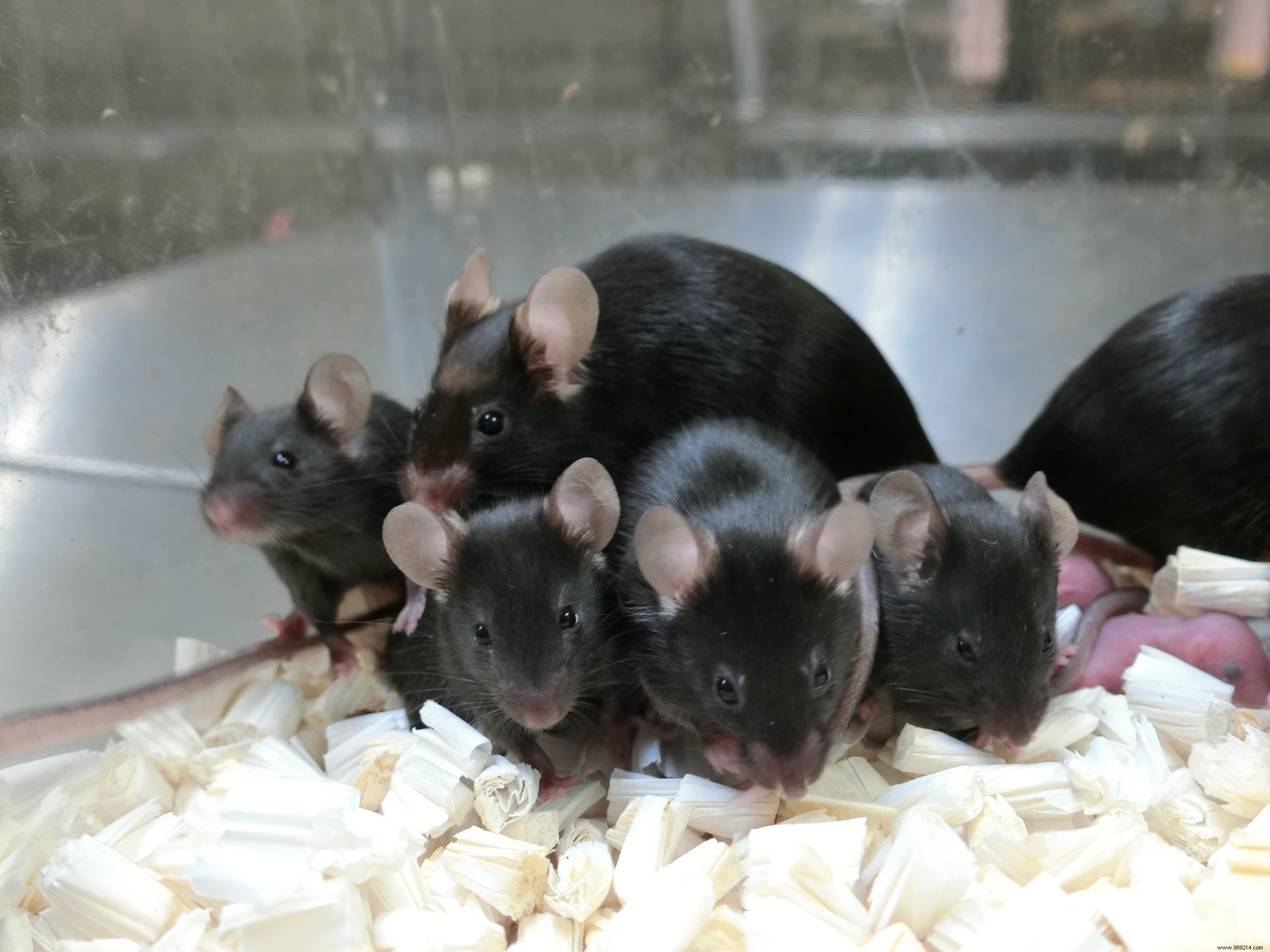Little, viable mice are born from freeze-dried sperm that spent years around the planet aboard the ISS. This work, the results of which are published in Science Advances , allow a better understanding of the effects of space radiation on living organisms and their "heritage".
Those who follow space news closely are already aware of this:the future of Man, threatened by himself, will probably be played out in space . Also for several years, researchers have been trying to understand the effects of space radiation on the DNA of mammals and other animals, and in particular on the ability to reproduce. Indeed, how can we imagine a future in space if we are unable to reproduce?
It is possible to study the long-term effects of space radiation on biological materials directly on Earth. But it's not perfect. This radiation indeed includes many types of particles (solar wind, solar cosmic rays, galactic cosmic rays) that cannot be reproduced in the laboratory.
As part of recent work, a Japanese team therefore turned to the ISS, our only laboratory currently available in orbit (pending the Chinese station).
So six years ago, sperm was stored aboard the International Space Station to be exposed to high levels of cosmic radiation. To avoid launching constraints, the researchers managed to freeze-dry the semen, allowing it to be kept at room temperature during the trip (no need for a freezer, therefore).
Once there, in August 2013, mouse sperm were stored in a freezer at minus 95 degrees Celsius . Some of the samples came back after nine months, some after two years and nine months, and the last came back after five years and 10 months . Never have biological samples spent so much time on board the ISS.
After nine months, the researchers noted some damage to the DNA of the sperm and to the nuclei of the male gametes, compared to the control samples. In contrast, fertilization and birth rates were similar, they reported in a study published in 2017.
More recently, researchers analyzed the remaining samples. The latter had absorbed about 0.61 millisievert (mSv) of radiation per day. By comparison, NASA's limit for astronauts exposed to radiation in low Earth orbit is about 50 mSv/year, or 0.14 mSv/day. In other words, the long-term storage of this sperm on board the ISS had not damaged his DNA significantly.
Finally, thanks to female mice, the researchers managed to fertilize eight healthy babies . These pups, produced from sperm that spent almost six years in space, showed no difference in gene expression compared to control samples. The researchers also managed to produce 160 viable pups from the samples that spent less time on board the ISS.

Of course, it is still unknown if these results could be obtained with human embryos. It should also be remembered that if the ISS evolves in low Earth orbit, it still integrates the protective magnetic field of the Earth. Also, we still do not know the potential damage that could be done to the DNA of biological cells in deep space. Such experiments can be envisaged in a few years on board the future station in lunar orbit.